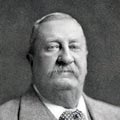Tales of the Turf, Part 6
Piccione, the Italian I have referred to in connection with Huacachina, owned a famous racehorse in the Argentine, named Pippermint. Pippermint was sired at Saturnino Unsue’s haras Indesis by St. Mirin. When put up at the usual yearly auction, he failed to fetch the reserve placed upon him, so George Attucha took him over on racing terms, i.e. if the horse, within a year, won an amount in stakes and other prizes equal to his reserve price, he then became Attucha’s property. Pippermint paid for himself many times over, his winnings amounting, I believe, to something like 140,000 dollars. At the finish of his racing career Attucha parted with him for £10,000 to Piccione, who wanted a stallion for his place in South Africa.
Some folk seem extraordinarily lucky. Attucha, for instance. I met him once at Mar-del-Plata, where I had taken Simpleton, hoping the sea-water would strengthen his leg. He had broken a small bone just below the joint, and it had not long been set. Attucha was enjoying himself among the bathers; varying this pleasant pastime with an occasional visit to the roulette tables. I accompanied him one night to the rooms. We each took with us about £10. Attucha staked his money on number 32. I placed mine on number 33. We had agreed that whoever of us won, should return the other his original stake capital. Round and round went the little ball, darting hither and thither, until it finally came to rest in number 32. Attucha raked in his winnings, and gave me back my £10. Once bit, twice shy, I didn’t risk it again, for I never loved gambling, not even on the Turf, and rarely backed a horse outside my own stable.
Don Jorge, however, decided to see his run of luck out. By the end of the week he had increased his gains to 56,000 dollars!
Attucha owned the famous French mare Siberie. I last saw him at Newmarket July meeting, about 1912. He had brought over a flier from the Argentine, but failed to capture anything with him.* Attucha also purchased Perrier, one of the late King Edward’s horses, giving £2100 for him, if I remember aright.
At Mar-del-Plata on another occasion I was accosted by one of Argentine’s biggest racing men. He was hard up, having mortgaged his house and shares. “I want to have a flutter,” said he. “Lend me five dollars, old pal.” I complied with his request, and he vanished into the roulette room, to reappear an hour later with 1000 dollars. Some years later I ran up against him in London. He was very pleased to see me, and said the little loan I made him brought him luck. He had played his winnings up, and eventually turned the original five dollars into 40,000. With this sum he paid off his mortgages, and then, like a sensible fellow, chucked roulette for ever and ever, Amen.
Although, as I have said before, I seldom chanced my luck at the tables, yet I must admit that the fickle goddess was once not too unkind to me. During my stay at Mar-del-Plata with Simpleton, I took a prominent English Church official to the roulette room. He wouldn’t play, he simply wished to look on and gather material for a speech he had to make at Buenos Ayres.
I for my part bought £1 worth of chips, and started backing Attucha’s lucky number. It was good enough to turn up, so I went on, and couldn’t do wrong. Within about an hour I won £300. I then left the tables, and took good care not to trouble them again.
With my winnings I paid all my expenses at Mar-del-Plata, including all Simpleton and my hacks had cost me, and even then landed back in Buenos Ayres with £200 in my pocket. So I considered I had a very cheap holiday!
*In my racing reminiscences I shall advance my theory for the failure of Argentine horses to show their proper form in England.
